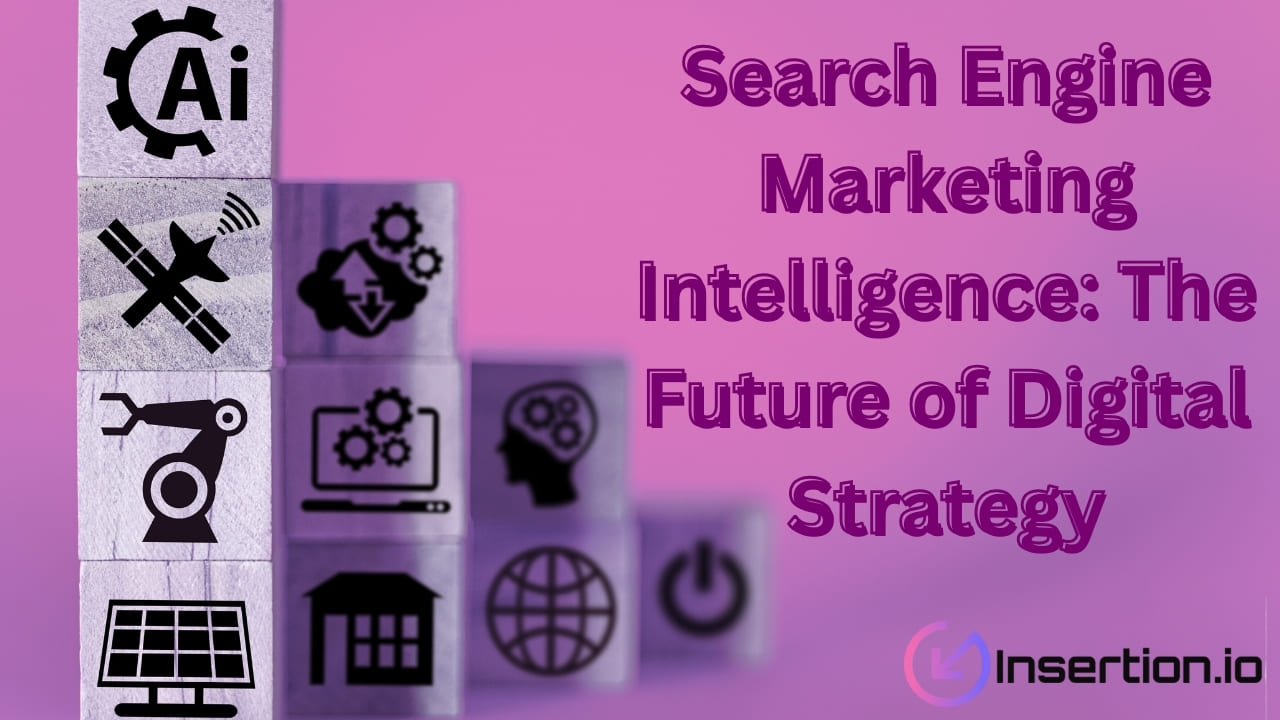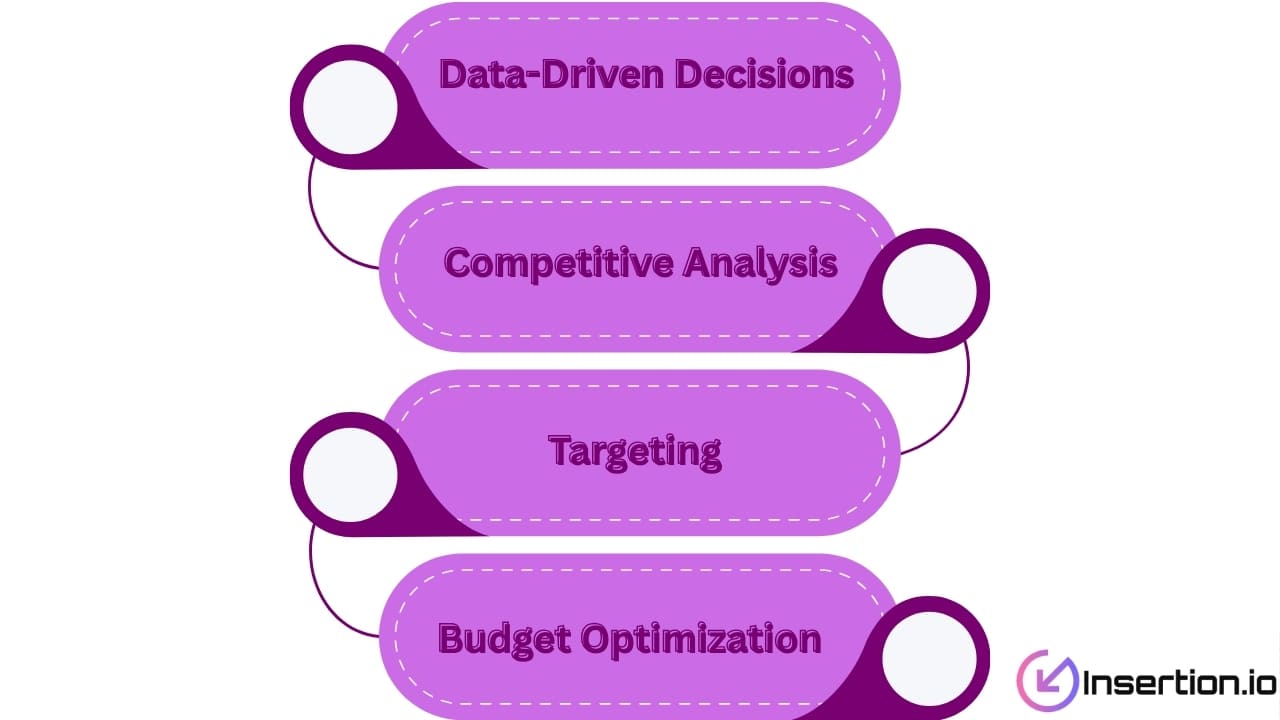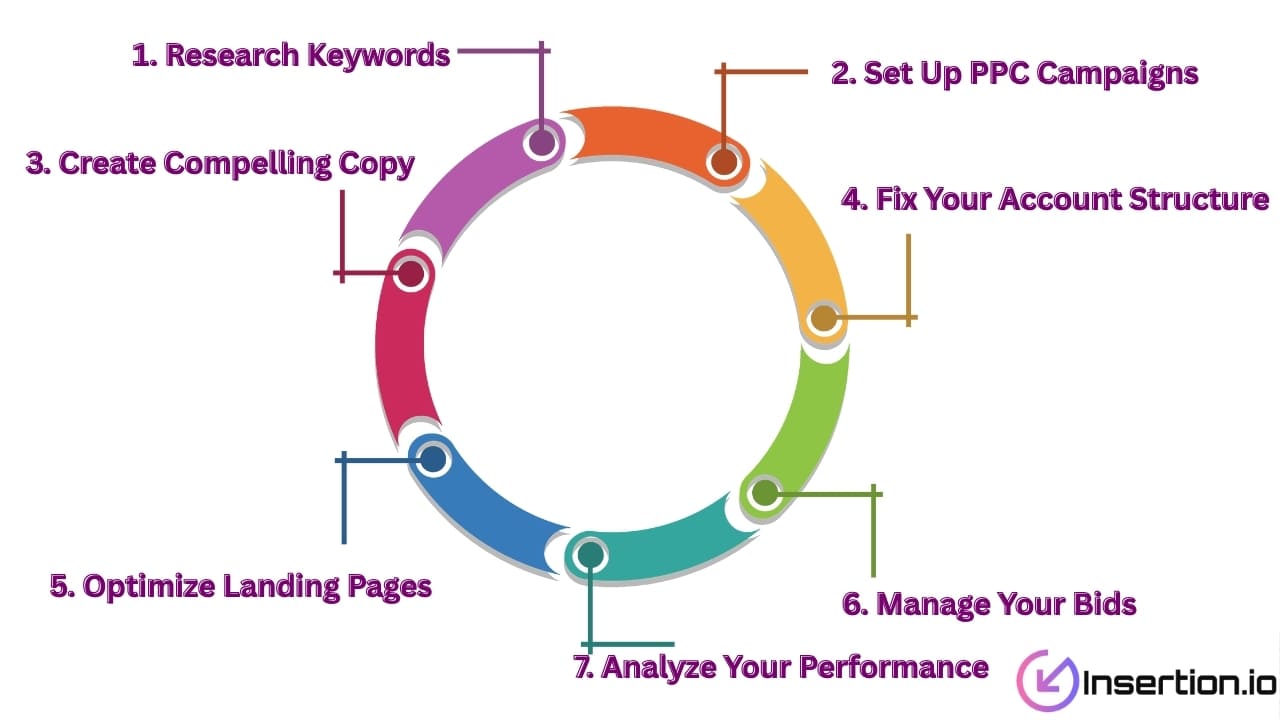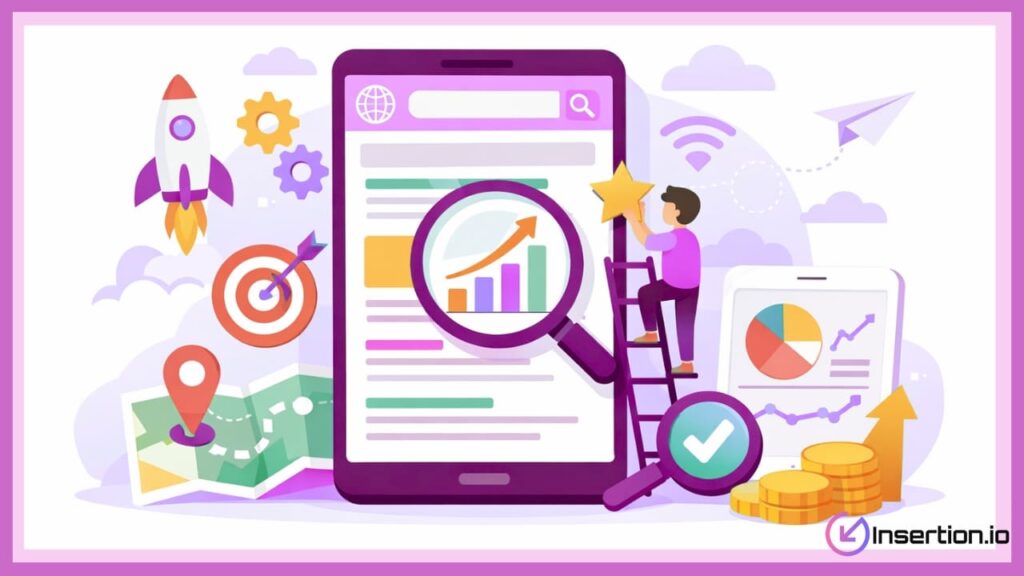
Many marketing teams fall behind because they lack actionable search engine data, missing real-time insights and optimization. AI-powered search tools redefine search behavior, voice, and visual, and how generative queries reshape organic and paid performance. The solution involves harnessing search engine marketing intelligence, combining SEO and PPC with advanced intelligence tools.
This approach unifies digital marketing and competitive intelligence to boost performance, improve search intent targeting, and refine strategies. This article presents a full guide to leveraging search marketing intelligence, from data gathering and campaign design to optimization and trend adaptation.
What Is Search Engine Marketing Intelligence?
Search engine marketing intelligence refers to the systematic use of search data, competitive intelligence, and advanced tools to refine digital marketing strategies. Businesses may use tools like Google Analytics, SEMrush, and Ahrefs to analyze vast amounts of data from search engines like Google. This intelligence provides valuable insights from search queries, organic search results, and paid search campaigns, helping marketing agencies optimize search performance.
Unlike traditional search engine optimization, SEM intelligence combines SEO and PPC strategies to improve search engine rankings. Consequently, search marketing intelligence tools allow marketers to stay ahead of the competition and achieve digital marketing goals.
The Benefits Of Search Engine Marketing Intelligence

Search engine marketing intelligence provides businesses with real-time data, competitive intelligence, and insights from search engines, enabling digital marketing strategies to stay ahead of the competition while enhancing marketing efforts and achieving measurable results in the evolving world of search. Here are some of the benefits:
Data-Driven Decisions:
Search engine marketing intelligence provides businesses with accurate data and insights that guide marketing decisions effectively. This intelligence allows marketing agencies to track search queries, search volume, and search behavior to improve their optimization. Furthermore, businesses can identify popular search terms, analyze real-time data, and correspondingly enhance their marketing strategies. Consequently, leveraging search intelligence tools enables more precise targeting, improved marketing campaigns, and better search performance. Thus, marketers can make data-driven decisions that boost their search visibility and achieve digital marketing goals.
Competitive Analysis:
Competitive intelligence is an essential part of search engine marketing intelligence because it helps businesses stay ahead. Marketing intelligence relies heavily on search data, search terms, and organic and paid search insights. This analysis provides real-time data that highlights where competitors appear in search and how their search strategies perform. Moreover, SEM intelligence enables marketing agencies to compare SEO and PPC results simultaneously for deeper insights. Consequently, businesses can adapt digital marketing strategies, identify weaknesses, and significantly improve overall marketing results.
Targeting:
Search marketing intelligence provides valuable data from search engines like Google that marketers can use effectively. By analyzing search behavior and search intent, businesses can target both organic search results and paid search campaigns. Additionally, intelligence solutions allow marketers to understand search volume, popular search terms, and emerging search trends. Furthermore, analyzing search queries and types of search helps refine search strategies and marketing campaigns. Hence, targeting based on search engine marketing intelligence ensures that digital marketing goals align with measurable marketing results.
Budget Optimization:
Optimization of marketing efforts is achievable when businesses use search marketing intelligence tools to allocate budgets effectively. Tools help agencies analyze real-time data, paid search engine performance, and organic search results for accurate predictions. By analyzing data from search engines, businesses can correspondingly adjust SEO strategies and paid search campaigns. Consequently, budget allocation becomes more efficient, ensuring marketing campaigns remain cost-effective and productive. Henceforth, intelligence can help organizations boost their search results while maximizing returns from digital marketing efforts.
Steps To Create A Search Engine Marketing Strategy

1. Research Keywords:
Initially, every search engine marketing strategy begins with strong keyword research for relevant search terms. Businesses must analyze search data, search trends, and search intent to uncover valuable search volume insights. Moreover, tools like SEMrush and Ahrefs, as well as Google Analytics, provide competitive intelligence. Correspondingly, such intelligence tools help marketers identify popular search terms shaping both organic search and paid search. Additionally, using search intelligence solutions helps marketing agencies evaluate competitors’ search behavior in real-time data environments. Overall, identifying relevant search queries allows brands to stay ahead of the competition significantly. Henceforth, keyword research strengthens future marketing strategies effectively.
2. Set Up PPC Campaigns:
Secondly, setting up paid search campaigns requires precise planning to maximize return on marketing efforts effectively. Search marketing intelligence tools provide real-time data and insights from search engines like Google instantly. Likewise, semi-intelligent systems assist in creating optimized ads, enabling campaigns to appear in search results. Additionally, both SEO and PPC should work concurrently for balanced organic search and paid search results. Undeniably, search engine rankings improve when intelligent bidding strategies align with well-structured PPC account planning. Therefore, PPC campaigns should complement existing digital marketing strategies accordingly.
3. Create Compelling Copy:
Creating compelling ad copy helps attract users searching specific search queries with clear intent. Evidently, well-crafted text increases search engine marketing performance, generating more clicks and organic search results. Tools like Google provide search intelligence to ensure ad copy aligns with search marketing strategies correctly. Furthermore, effective search marketing intelligence provides insights from search behavior, enabling better targeting and audience segmentation. Marketing agencies also focus on differentiating ads using content marketing strategies combined with competitive intelligence insights. Moreover, search marketing intelligence is valuable because it supports creative testing, helping businesses boost search performance. Thus, compelling ad copy ensures higher engagement and maximizes digital marketing results significantly.
4. Fix Your Account Structure:
Fixing your PPC account structure allows better campaign organization and effective search marketing strategies. Search engine marketing intelligence provides data and insights, ensuring campaigns align with digital marketing goals effectively. Moreover, structuring accounts properly simplifies analyzing search campaigns, boosting both organic and paid search performance. Certainly, competitive intelligence tools help marketers organize search engine results page targeting within campaigns more efficiently. Additionally, intelligence provides significant data that enables more informed marketing decisions and reduces wasted paid search spend. Overall, structured accounts remain essential for effective search campaigns in a competitive search ecosystem.
5. Optimize Landing Pages:
Landing page optimization plays a pivotal role in search engine optimization and marketing success. Indeed, optimized landing pages directly affect organic search results and paid search campaigns simultaneously. Additionally, intelligence solutions provide insights from search engines, indicating which content resonates most with targeted search behavior. Comparatively, well-designed landing pages improve search engine rankings and marketing results more than poorly optimized ones. Furthermore, optimizing pages supports both SEO strategies and PPC efforts within a broader digital marketing strategy. Hence, marketers should consistently improve landing pages to achieve their digital marketing goals effectively.
6. Manage Your Bids:
Managing bids requires intelligence tools that allow marketers to balance budget and campaign performance carefully. Paid search campaigns often rely heavily on search marketing intelligence to set competitive bids correctly. Moreover, using advanced tools helps analyze search engine results page activity and forecast better bidding outcomes. Additionally, intelligence allows businesses to stay ahead by monitoring real-time data from search engines. Overall, managing bids strategically ensures campaigns appear in search engines like Google with maximum efficiency. Therefore, bid management remains crucial for achieving both organic and paid search marketing results.
7. Analyze Your Performance:
Lastly, analyzing your performance helps measure how well search marketing strategies align with digital marketing goals. Evidently, intelligence provides marketers with search data, insights from search engines, and competitive intelligence comparisons. Furthermore, tools like SEMrush and Ahrefs help analyze search engine rankings and the search ecosystem. Additionally, analyzing search performance allows marketing agencies to adapt their search strategies and marketing campaigns effectively. Organic and paid search should be reviewed concurrently because both influence digital marketing strategies directly. Also, search intelligence tools enable businesses to boost search performance while reducing wasted marketing efforts. Consequently, continuous performance analysis is essential for staying ahead in the landscape of digital marketing.
Best Tools for Search Engine Marketing Intelligence
Search engine marketing intelligence provides real-time data, competitive intelligence, and insights from search engines like Google. These intelligence tools undoubtedly help companies boost their search and achieve digital marketing goals.
1. SEMrush
SEMrush is one of the top search marketing intelligence tools that provides data from search engines. Businesses can track search queries, search volume, and competitive intelligence to improve their search engine optimization. Additionally, SEMrush offers advanced tools for analyzing search trends, organic search results, and paid search campaigns, supporting stronger digital marketing strategies and measurable results.
2. Ahrefs
Ahrefs provides businesses with intelligence tools that analyze organic search results, backlinks, and search performance. Companies may use tools like Ahrefs to track popular search terms, analyze vast amounts of search data, and evaluate competitor strategies. Consequently, Ahrefs supports marketing agencies by delivering accurate data and insights from search engines like Google effectively.
3. Google Analytics
Google Analytics plays a crucial role in search engine marketing intelligence because it provides real-time data. Businesses may use tools like Google Analytics to track search behavior, search queries, and campaign performance. Furthermore, it helps agencies align marketing efforts with SEO strategies and paid search campaigns, improving digital marketing strategies and marketing results.
4. Moz Pro
Moz Pro offers essential search intelligence tools that support search engine optimization and marketing strategies effectively. Companies may use tools like Moz Pro to analyze search volume, keyword performance, and search engine rankings. Additionally, it provides competitive intelligence and actionable data and insights, enabling marketing agencies to boost their search results significantly.
Conclusion
Search engine marketing intelligence shifts digital strategy from guesswork to precision, empowering brands with real-time search data, optimization tools, and actionable insights. By combining SEO, PPC, AI SEO, AEO, and GEO, you prepare for the evolving search ecosystem and stay ahead of the competition. Leveraging intelligence tools enhances marketing decisions, aligns campaigns with emerging trends, and ensures visibility across traditional and AI-driven search experiences. In effect, intelligence provides depth, efficiency, and measurable results that traditional search tactics cannot match. Ready to reimagine your search marketing approach using actionable intelligence?
FAQs
Why is SEM intelligence important?
It unites search data and marketing strategies, enabling data-driven decisions that elevate campaign performance.
How does AI change marketing intelligence?
AI introduces natural-language queries, real-time analytics, and predictive insights that shift the focus from keywords to intent.
What is AI SEO, AEO, and GEO?
AI SEO integrates AI into optimization; AEO targets answer engines; GEO ensures content is cited by generative AI.
How does AI SEO affect visibility?
It helps brands appear in AI summaries and chat responses rather than just traditional SERP listings.
What tools support search marketing intelligence?
Tools like SEMrush, Ahrefs, Moz Pro, and Google Analytics surface real-time search data, competitive insights, and performance metrics.





Leave a Comment